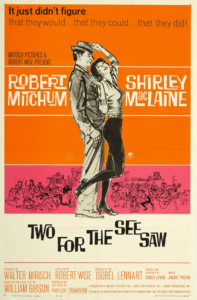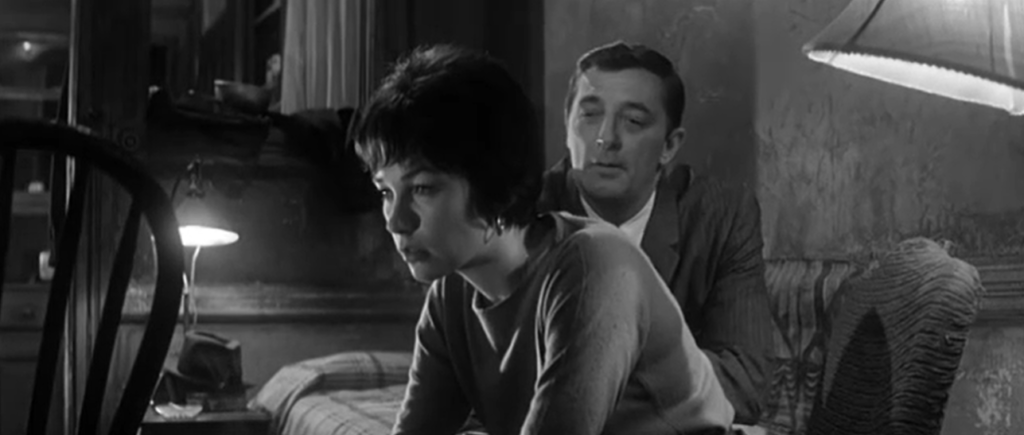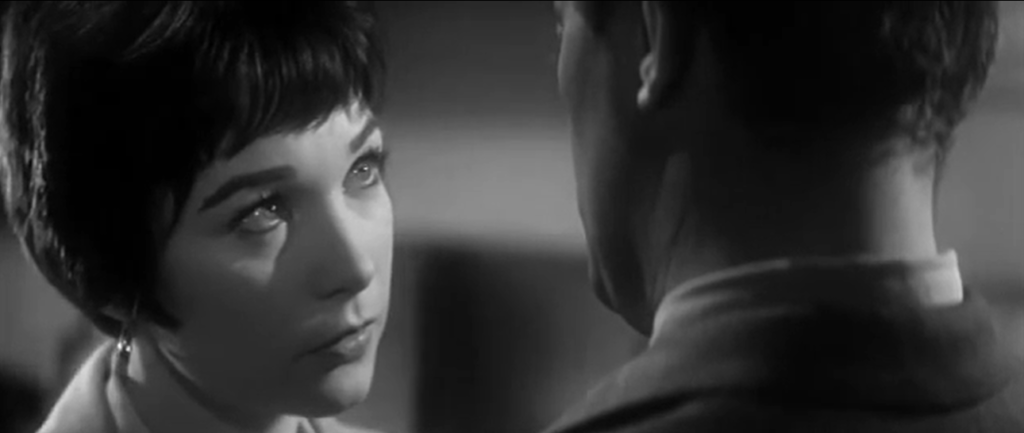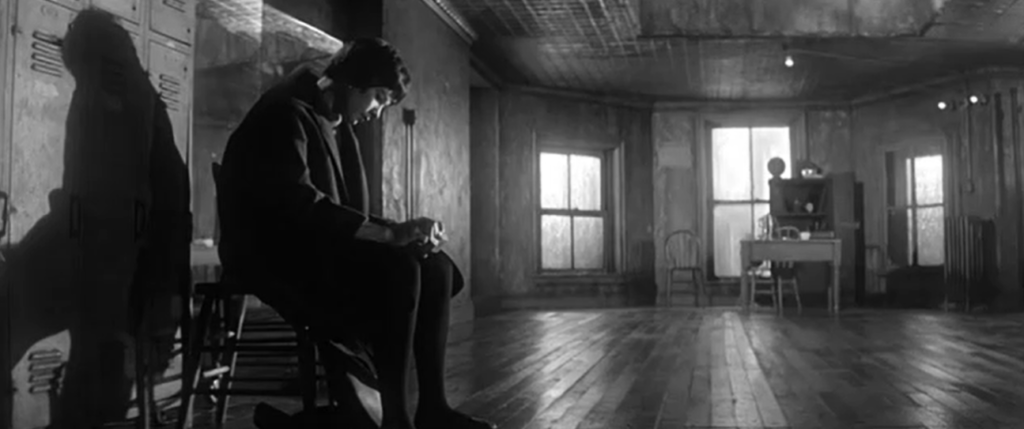“You do all the giving — because what I have to give, you don’t want.”
|

Synopsis:
A lawyer (Robert Mitchum) separated from his wife back in Nebraska begins dating a quirky young woman (Shirley MacLaine) he meets in New York City, and the two begin a rocky, unconventional romance.
|
|
Genres, Themes, Actors, and Directors:
- Divorce
- New York City
- Play Adaptation
- Robert Mitchum Films
- Robert Wise Films
- Romance
- Shirley MacLaine Films
Review:
Robert Wise directed this adaptation of a play by William Gibson (originally starring Henry Fonda and Anne Bancroft) about an unconventional couple whose relationship is tinged throughout by doubt. The story is a simple but nicely told tale of two adults who value one another while recognizing their challenges and differences — and we’re left in suspense about how things will end for them.

It’s not must-see viewing, but it’s worth a one-time look for fans of the stars (who embarked upon a three-year romance in real life after meeting on this set, and demonstrate some genuine chemistry).
Notable Performances, Qualities, and Moments:
- Shirley MacLaine as Gittel

- Ted McCord’s cinematography

Must See?
No, but it’s worth a one-time look. Listed as a Personal Recommendation in the back of Peary’s book.
Links:
|




2 thoughts on “Two for the Seesaw (1962)”
Rewatch (6/22/22). Skip it.
It’s hard to believe (now) that, as a play, this ran on Broadway for 750 performances! I guess its soap opera aspect must have had particular appeal for the period. The now-largely-forgotten film version seems to follow the play rather closely but, as a film, it’s a talky slog (with a lot of the talk going in circles) with almost no dramatic drive. Jerry and Gittel talk and talk about their character differences until you basically want to scream.
While a lot of the talk is simply mind-numbing, sometimes it’s obvious that there is no real drama here – like when Mitchum suddenly belts MacLaine across the mouth for no real reason other than drama. It’s stupid when it happens and bizarre that Gittel responds to it so relatively lightly.
After just finishing ‘West Side Story’, it’s understandable that Wise would go in the opposite direction for a change of pace and opt next for something intimate. But this is just a snore.
Writer Gibson then turned around and gave Anne Bancroft (the original Gittel) something really worth working on: ‘The Miracle Worker’.
They do talk… a LOT. But since it’s a play I was able to forgive that somewhat. And I appreciated some of the insights they each came to about their personalities and needing to move beyond their automatic comfort zones (giving/receiving).
On the other hand, I really didn’t know what else to say about this film other than that… it’s about an odd couple having troubles and working things through. I guess people at the time really did want to watch this kind of thing.